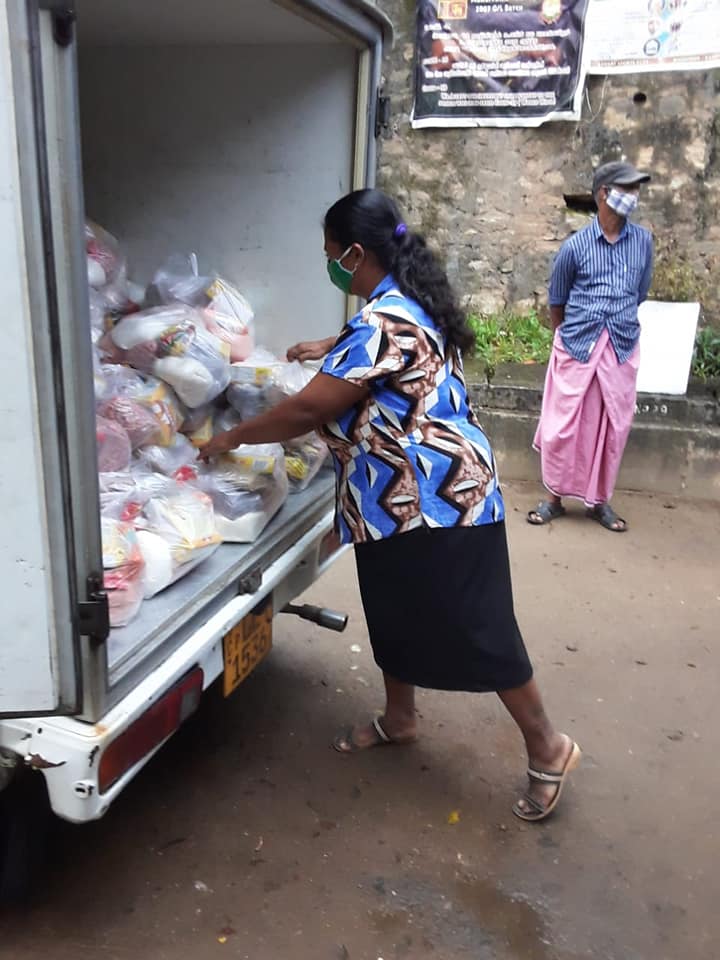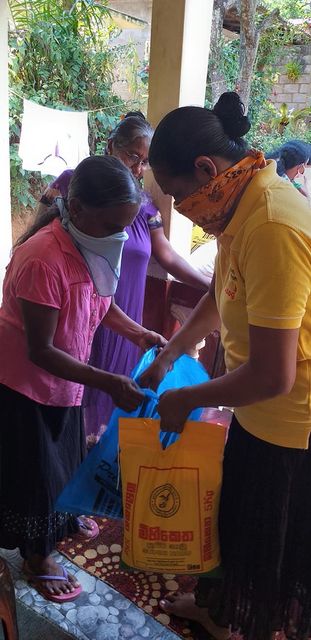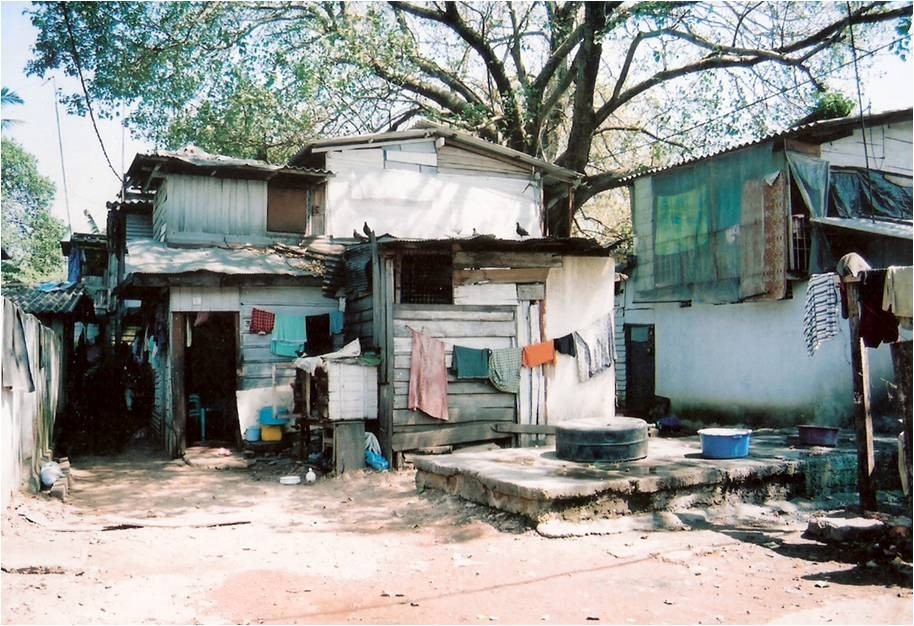Documentation
HousThe role of Janarukula in empowering the marginalized women to deal with the disaster situations.


Opportunities for alternative actions towards sustainable solutions.
Covid 19 crisis also entails an excellent opportunity to take the alternative actions towards the resilient and sustainable solutions in disaster situations.
Accordingly, Janarukula has decided to undertake participatory research on the lessons learned and alternative solutions possible in dealing with disaster situations with special references to the current Covid 19 pandemic, targeting family members of the Women Cooperative Federation members in urban and semi urban areas.
Read More......
Discussion note of the friendly dialog with the community in Kotte underserved settlements
Sri Jayewardenepura Kotte, having been the national capital of Sri Lanka in the 15th century is a city with a great heritage. After several centuries of neglect the city has once again risen to prominence after its declaration as the administrative capital of Sri Lanka in 1982.
In the process of rapid urbanization, a common phenomenon has been the inadequate housing for the city dwellers and marginalized communities in underserved settlements are the most affected groups.
Read More......
Housing Program

 Shelter is a basic and essential human right. The provision of this basic and essential human right can be a catalyst for economic development. Any form of economic development can be frustrated if decent shelter is not available for all. Therefore development of housing finances system which responds to the needs of all sections of the population, and in particular to the needs of the poor should be an essential component of any poverty alleviation program. In Sri Lanka over the last two decades the government has made an exceptional effort to provide housing finance to low income families. Under the Million Houses Program and 1.5 Million Houses Program the National Housing Development Authority (NHDA) has succeeded in increasing low income access to housing finance in urban and rural areas alike. This government intervention of providing housing finance has now been slowed down.
Shelter is a basic and essential human right. The provision of this basic and essential human right can be a catalyst for economic development. Any form of economic development can be frustrated if decent shelter is not available for all. Therefore development of housing finances system which responds to the needs of all sections of the population, and in particular to the needs of the poor should be an essential component of any poverty alleviation program. In Sri Lanka over the last two decades the government has made an exceptional effort to provide housing finance to low income families. Under the Million Houses Program and 1.5 Million Houses Program the National Housing Development Authority (NHDA) has succeeded in increasing low income access to housing finance in urban and rural areas alike. This government intervention of providing housing finance has now been slowed down.
The state Mortgage and Investment Bank (SMIB), and the Housing Development and Finance Corporation (HDFC) have become the main providers of housing finance. Both theses institutions maintain a conventional approach to housing finance. The eligibility criteria they use for housing finance are mainly based on the level and stability of income. They maintain standard formulas on the computation of loan repayment installments. They need collateral mainly in the form of title to land. Their procedure are lengthy and complication.
Theses procedure of the conventional financial institutions has become barriers for the poor. They cannot reach theses institutions to meet their housing finance requirements. Their incomes are not stable. They do not possess good titles for their land rights. They are not knowledgeable to follow the lengthy and complicated procedures. The low income households cannot satisfy the loan criteria of these conventional financing institutions.
Read More......
Uswattha Housing Program

 Usavivaththa is the new name given for Rawathawaththa settlement after the opening of the magistrate court (Usavi) in 1983 adjoining this settlement. Usavivaththa is a state land with an extent of 03 roods and 36 perches. Although the land is owned by the Government of Sri Lanka, for the last 60 years the Municpal Council was using it for municipal services without any encumbrances or interference from the government. This settlement has been created by the Moratuwa Urban Council in 1952 by constructing 10 labor quarters for its conservancy laborers. Now these 10 housing units which too are of semi-permanent nature have expanded to 50 units adding another 40 temporary unauthorized constructions to accommodate 59 families with the new families that had been subsequently added. Total population of the settlement as at 08th May 2005 was 250, of them 132
Usavivaththa is the new name given for Rawathawaththa settlement after the opening of the magistrate court (Usavi) in 1983 adjoining this settlement. Usavivaththa is a state land with an extent of 03 roods and 36 perches. Although the land is owned by the Government of Sri Lanka, for the last 60 years the Municpal Council was using it for municipal services without any encumbrances or interference from the government. This settlement has been created by the Moratuwa Urban Council in 1952 by constructing 10 labor quarters for its conservancy laborers. Now these 10 housing units which too are of semi-permanent nature have expanded to 50 units adding another 40 temporary unauthorized constructions to accommodate 59 families with the new families that had been subsequently added. Total population of the settlement as at 08th May 2005 was 250, of them 132
had been males and the balance 118 were females. 169 of them have had some level of school education. 24 of them are G.C.E. (O/L) qualified persons. Children under 18 years were 100. Gainfully employed number was 96. All most all housing units have 2 employed members. As such incomes of most of the families in comparison to the incomes of low income settlements are moderate. More…………
Read More......
Poor women Federation and Janarukula in Sri Lanka
 The Alliance of WDBF and Janarukula in Sri Lanka In Sri Lanka, the Alliance supporting urban poor networks comprises of two primary entities – the Women’s Development Bank Federation (WDBF) and the support organization, Janarukula headed by Mr. Upali Sumithre. However, the poor families who are part of this movement/network are not strictly from cities. The federation is highly active in both urban and rural areas though Janarukula’s focus has always been urban areas and urban poor. This short report describes the history, evolution, activities and spread of the Alliance in Sri Lanka. It has been based on extensive interviews with key leaders of the federation and Janarukula. Besides these interviews, some field visits were also conducted to actually witness the enormous effort put in by the Alliance to assuage the multiple vulnerabilities that urban poor are exposed to, especially in areas of housing and sanitation. Moreover, some group discussions with families of poor people and members of primary savings groups in some settlements helped demonstrate the importance of the Alliance in their lives. In addition to simple documentation of the work of the Alliance, the purpose of the report is also to touch upon the positive change that has occurred in the lives of people that constitute this movement. The work and activities of the federation being far too extensive and numerous, this report has focussed on Savings and Enumeration only. The history and nuances of the association between the federation and the support organization is also a part of this study.
The Alliance of WDBF and Janarukula in Sri Lanka In Sri Lanka, the Alliance supporting urban poor networks comprises of two primary entities – the Women’s Development Bank Federation (WDBF) and the support organization, Janarukula headed by Mr. Upali Sumithre. However, the poor families who are part of this movement/network are not strictly from cities. The federation is highly active in both urban and rural areas though Janarukula’s focus has always been urban areas and urban poor. This short report describes the history, evolution, activities and spread of the Alliance in Sri Lanka. It has been based on extensive interviews with key leaders of the federation and Janarukula. Besides these interviews, some field visits were also conducted to actually witness the enormous effort put in by the Alliance to assuage the multiple vulnerabilities that urban poor are exposed to, especially in areas of housing and sanitation. Moreover, some group discussions with families of poor people and members of primary savings groups in some settlements helped demonstrate the importance of the Alliance in their lives. In addition to simple documentation of the work of the Alliance, the purpose of the report is also to touch upon the positive change that has occurred in the lives of people that constitute this movement. The work and activities of the federation being far too extensive and numerous, this report has focussed on Savings and Enumeration only. The history and nuances of the association between the federation and the support organization is also a part of this study.









